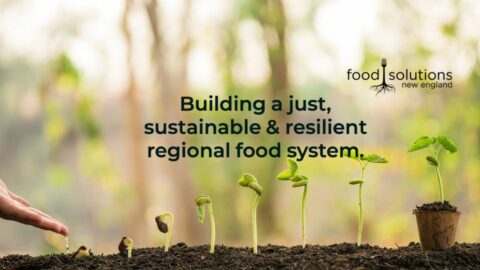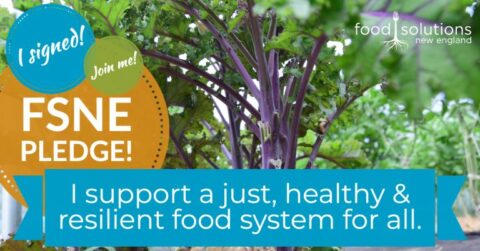Lessons From 12 Years of Weaving a Regional Network for Better Food Futures
February 2, 2024 Leave a comment
Recently a colleague and I were invited to present to partners in Mississippi about what we have learned over a dozen years of creating a network in New England dedicated to advancing a just, sustainable, democratic and collaborative regional food system.
It has been quite a journey to date, filled with twists and turns, much joy, and some hard-earned wisdom. Over this time I have done my best to capture insights and developments as they have happened in blog posts. In reflecting on those, along with content that has been curated on the network’s website, I pulled together the list of developmental lessons/milestones below.
This could easily be longer, and if one were to “double click” on any item, a whole story would unfold with other learnings. Some day we hope to capture this in a fuller telling, and for now, here is an offering of 25+ take-aways, some of which might be of interest to others depending on where you are in your own network stories of change.
- Work and consider what we can do as a six-state region, as opposed to individual states.
- Co-create a guiding vision to bring people together across real and perceived differences/boundaries.
- Build a network and strengthen trust that is vertical, horizontal and diagonal (in network-speak, “bond and bridge“); years from now, we will be very glad we did.
- Lean into core and common values (these will help us through some of the hard times and decisions).
- Engage in storytelling and breaking bread together, getting to know one another beyond roles, titles and assumptions (this will create more “surface area” for connection).
- Ensure there is funding to support skillful and dedicated convening, coordination, facilitation and other key collaborative functions.
- Create diverse teams for key functions such as process design, strategy development and program implementation to deepen engagement.
- Keep evolving and socializing the shared vision, helping people understand what a vision is/is not and what a vision can do.
- Keep evolving and socializing the network, helping people understand what a network is/is not, and what a network can do.
- Enroll formal network weavers (we call them “ambassadors”) and commit to ongoing outreach to keep expanding and diversifying the network.
- Work to really understand social inequities, what drives them and what they have to do with food; commit to racial and other forms of equity broadly and deeply.
- Leverage “network effects” and network tools to spread learning.
- Work to better understand the dominant system(s) and why, despite our best efforts, they persist and resist.
- Identify leverage areas (we now call them “impact areas”) that we can lean into collectively to create the better system(s) that align with our shared vision and values.
- “Do what you do best and connect to the rest” – keep focusing on what is ours to do as a network in the region, while respecting, appreciating and linking with what others are doing that aligns with and complements our efforts.
- Create pipelines for and connect emerging and existing leaders in the regional food system.
- Work for narrative change in and around the food system and messaging that aligns with our shared vision and values.
- Create an integrated policy platform across the region and sectors, grounded in our core vision and values, and help make policy more accessible and relevant to everyone.
- As Toni Morrison once wrote, “Keep asserting the complexity and the originality of life, and the multiplicity of it, and the facets of it.” Normalize complexity in our shared work, while avoiding making things more complex than they need to be.
- With respect to technology tools and platforms, remember that less can truly be more, and that they are as much about sociology as technology. Ask what you really need to facilitate fluid communication, sharing and decision-making.
- Be prepared for disruptions and learn to pivot together with grace.
- Be trauma-informed,
- Be well-being oriented.
- Be dedicated to accessibility.
- Ongoing and always, throughout all of the above, practice “fierce love” (deep caring and accountability, for/to yourself and others)
Also, based on where we seem to be heading in 2024 … Help weave together a larger regional “network of networks” and regional infrastructure focused on addressing poverty advancing climate resilience and supporting thriving communities/local people.
Feel free to sign the Food Solutions New England Pledge here, no matter where you are, to support and align with our core values and vision.
